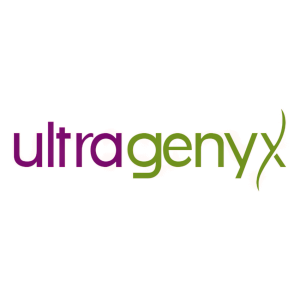Ultragenyx Provides Update on Stage 1 Cohorts in Pivotal Phase 1/2/3 Cyprus2+ Study Evaluating UX701 Gene Therapy for the Treatment of Wilson Disease
Rhea-AI Summary
Ultragenyx Pharmaceutical Inc. (NASDAQ: RARE) has reported promising results from the Phase 1/2/3 Cyprus2+ study of its UX701 gene therapy for Wilson Disease. The study has shown meaningful clinical activity and improvements in copper metabolism in Stage 1. Notably, six patients have completely tapered off standard-of-care treatment, with responses observed across all three dose cohorts.
The company plans to enroll an additional cohort in Stage 1 with a moderately increased dose and an optimized immunomodulation regimen to enhance the therapy's efficiency and efficacy. The goal is to have the majority of patients discontinue standard-of-care treatment before selecting a dose for the randomized placebo-controlled stage.
UX701 has been well-tolerated, with no unexpected related treatment emergent adverse events or significant immunologic safety issues reported. The study's design includes three stages, with the primary efficacy endpoints being change in 24-hour urinary copper concentration and percent reduction in standard-of-care medication by Week 52 of Stage 2.
Positive
- Six patients have completely tapered off standard-of-care treatment
- Responses seen in all three dose cohorts
- Improvements in copper metabolism observed
- Non-ceruloplasmin bound copper (NCC) stabilized to normal levels in patients off standard-of-care
- Increases in ceruloplasmin-copper activity in some patients, consistent with improved ATP7b function
- UX701 has been well-tolerated with no unexpected related treatment emergent adverse events
Negative
- Additional cohort required at a higher dose, potentially delaying study progression
- Not all patients have been able to taper off standard-of-care treatment
News Market Reaction – RARE
On the day this news was published, RARE gained 0.24%, reflecting a mild positive market reaction.
Data tracked by StockTitan Argus on the day of publication.
NOVATO, Calif., Oct. 03, 2024 (GLOBE NEWSWIRE) -- Ultragenyx Pharmaceutical Inc. (NASDAQ: RARE) today reported that the Phase 1/2/3 Cyprus2+ study of its UX701 gene therapy has demonstrated meaningful clinical activity as well as improvements in copper metabolism in Stage 1. Multiple responders have completely tapered off of standard-of-care treatment with responses seen in all three dose cohorts. The company plans to enroll an additional cohort in Stage 1 at a moderately increased dose and with an optimized immunomodulation regimen to enhance the efficiency and efficacy of the gene therapy, with the objective of having the majority of patients come off of standard-of-care treatment before selecting a dose for the randomized placebo-controlled stage of the study.
In Stage 1, 15 patients were enrolled into three sequential dosing cohorts and followed for at least 24 weeks. Six of the patients have completely tapered off of standard-of-care treatment with chelators and/or zinc therapy, and a seventh patient has begun to taper as of the data cut-off date in August. In patients who have tapered off standard-of-care, non-ceruloplasmin bound copper (NCC) has stabilized to normal, healthy levels. In some patients, there were increases in ceruloplasmin-copper activity consistent with improved ATP7b function. From a safety perspective, UX701 has been well tolerated, with no unexpected related treatment emergent adverse events and no significant immunologic safety events as of the data cut-off. The company will be submitting a protocol amendment for the additional cohort at a moderately increased dose and with an optimized immunomodulation regimen to optimize delivery efficiency and efficacy for the AAV vector.
“We are encouraged by the clinical activity we’re seeing with UX701 at this interim timepoint, with clear signals of transgene expression and improved trafficking of copper in a subset of patients currently enrolled in the study. These results, in addition to a number of patients tapering off of standard-of-care, give us confidence that this could ultimately be a novel therapy for people living with Wilson disease,” said Eric Crombez, M.D., chief medical officer at Ultragenyx. “A higher dose and optimized immunomodulation should enhance the clinical effect of this gene therapy and the ability to remove current standard-of-care in an even broader set of patients.”
U.S. residents can learn more by visiting www.ultraclinicaltrials.com.
Phase 1/2/3 Cyprus2+ Study Design
This study evaluating UX701 for the potential treatment of Wilson disease is designed with three stages. During the first stage (Stage 1), the safety and efficacy of multiple dose levels of UX701 will be evaluated and a dose will be selected for further evaluation in Stage 2. To date, 15 patients have been enrolled into three sequential dosing cohorts to evaluate doses of 5.0 x 10^12 GC/kg, 1.0 x 10^13 GC/kg, and 2.0 x 10^13 GC/kg. A fourth dosing cohort will be added and all patients in Stage 1 will be evaluated over the course of 52 weeks.
In Stage 2, a new cohort of patients will be randomized 2:1 to receive the selected dose of UX701 or placebo. The primary safety and efficacy analyses will be conducted at Week 52 of Stage 2. The primary efficacy endpoints are change in 24-hour urinary copper concentration and percent reduction in standard-of-care medication by Week 52. After the initial 52-week study period, all patients will have long-term follow up in Stage 3.
About Wilson Disease
Wilson disease is a rare inherited disorder caused by mutations in the ATP7B gene, which results in deficient production of ATP7B, a protein that transports copper. Loss of function of this copper-binding protein results in the accumulation of copper in the liver and other tissues, most notably the central nervous system, and failure to properly distribute copper by ceruloplasmin. Patients with Wilson disease experience hepatic, neurologic and/or psychiatric problems. Those with liver disease can experience such symptoms as fatigue, lack of appetite, abdominal pain and jaundice, and can progress to fibrosis, cirrhosis, life-threatening liver failure and death. Wilson disease can be treated by reducing copper absorption or removing excess copper from the body using life-long chelation therapy, but unmet needs exist because some treated patients experience clinical deterioration and severe side effects. Wilson disease affects more than 50,000 people in commercially accessible geographies.
About UX701
UX701 is an investigational AAV9 gene therapy designed to deliver stable expression of the ATP7B copper transporter following a single intravenous infusion. It has been shown in preclinical studies to normalize copper trafficking and excretion from the body. UX701 has been granted Orphan Drug Designation in the United States and European Union and Fast Track Designation in the United States.
About Ultragenyx Pharmaceutical Inc.
Ultragenyx is a biopharmaceutical company committed to bringing novel products to patients for the treatment of serious rare and ultrarare genetic diseases. The company has built a diverse portfolio of approved therapies and product candidates aimed at addressing diseases with high unmet medical need and clear biology for treatment, for which there are typically no approved therapies treating the underlying disease.
The company is led by a management team experienced in the development and commercialization of rare disease therapeutics. Ultragenyx’s strategy is predicated upon time- and cost-efficient drug development, with the goal of delivering safe and effective therapies to patients with the utmost urgency.
For more information on Ultragenyx, please visit the company's website at: www.ultragenyx.com.
Ultragenyx Forward-Looking Statements and Use of Digital Media
Except for the historical information contained herein, the matters set forth in this press release, including statements related to Ultragenyx's expectations and projections regarding its future operating results and financial performance, business plans and objectives for UX701, expectations regarding the tolerability and safety of UX701, and future clinical and regulatory developments for UX701 are forward-looking statements within the meaning of the "safe harbor" provisions of the Private Securities Litigation Reform Act of 1995. Such forward-looking statements involve substantial risks and uncertainties that could cause our clinical development programs, collaboration with third parties, future results, performance or achievements to differ significantly from those expressed or implied by the forward-looking statements. Such risks and uncertainties include, among others, the uncertainty of clinical drug development and unpredictability and lengthy process for obtaining regulatory approvals, the ability of the company to successfully develop UX701, the company’s ability to achieve its projected development goals in its expected timeframes, risks related to adverse side effects, risks related to reliance on third party partners to conduct certain activities on the company’s behalf , smaller than anticipated market opportunities for the company’s products and product candidates, manufacturing risks, competition from other therapies or products, and other matters that could affect sufficiency of existing cash, cash equivalents and short-term investments to fund operations, the company’s future operating results and financial performance, the timing of clinical trial activities and reporting results from same, and the availability or commercial potential of Ultragenyx’s products and drug candidates. Ultragenyx undertakes no obligation to update or revise any forward-looking statements.
For a further description of the risks and uncertainties that could cause actual results to differ from those expressed in these forward-looking statements, as well as risks relating to the business of Ultragenyx in general, see Ultragenyx's Quarterly Report on Form 10-Q filed with the Securities and Exchange Commission (SEC) on August 2, 2024, and its subsequent periodic reports filed with the SEC.
In addition to its SEC filings, press releases and public conference calls, Ultragenyx uses its investor relations website and social media outlets to publish important information about the company, including information that may be deemed material to investors, and to comply with its disclosure obligations under Regulation FD. Financial and other information about Ultragenyx is routinely posted and is accessible on Ultragenyx’s Investor Relations website (https://ir.ultragenyx.com/) and LinkedIn website (https://www.linkedin.com/company/ultragenyx-pharmaceutical-inc-/).
Contacts
Ultragenyx Pharmaceutical Inc.
Investors
Joshua Higa
+1-415-475-6370
ir@ultragenyx.com
Media
Carolyn Wang
+1-415-225-5050
media@ultragenyx.com








